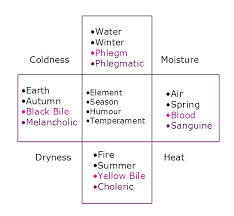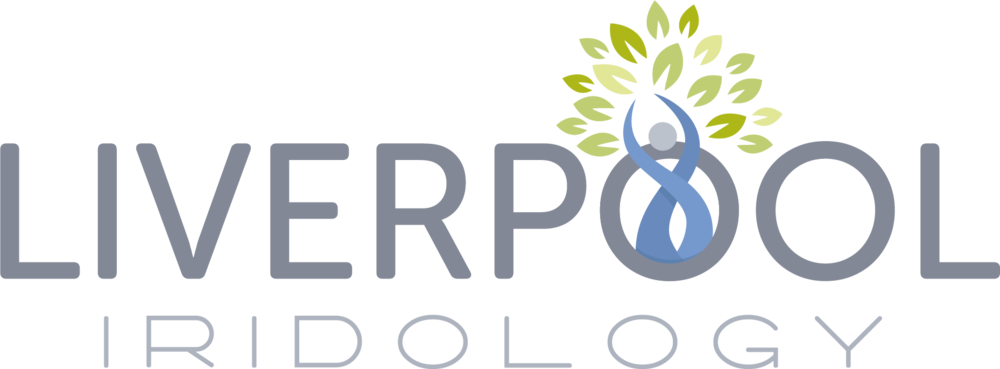Blog Spot

What are the Elements?
Monday 4th September 2023
Liverpool Iridology
In Unani Medicine, the elements are primary substances that make up both human and non-human bodies.
These elements are the basic or simple matters that cannot be divided and constitute the basic components of not only the human body but of every living organism and everything else in the universe.
So, every compound found in nature, is a combination of these elements and whichever is in higher proportion, determines whether it exists in either the form of a solid, a liquid or a gas.
There are 4 primary elements, and they all have specific characteristics:
Element
Light or heavy
Related qualities
Fire
Light
Masculine – weak, positive, active and delicate
Air
Light
Masculine - weak, positive, active and delicate
Earth
Heavy
Feminine – strong, negative, passive and earthly
Water
Heavy
Feminine – strong, negative, passive and earthly
The significance of the Heavy and Light qualities are as follows:
• Heavy elements assist in organ formation and stability.
• Light elements assist in the formation and movement of spirits and organ movement.
The Fire element
Fire represents the Hot and transformative aspect of the body. It is associated with qualities like warmth and dryness. In the human body, the element of fire corresponds to metabolic processes and the digestive system.
The purpose of fire is to produce maturation, lightness and intermingling of the elements.
Fire basically breaks the coldness of the heavy and cold earth qualities as well as water and forces them to integrate into a matter which then becomes the temperament, which is essentially a combination of the elements. (See Blog 5, temperaments)
Imbalances in the fire element can lead to conditions like excessive heat, inflammation and digestive disturbances.
The Air element
The Air element represents gaseous aspect of the body and is associated with qualities like warmth and wetness. In the human body, the element of air corresponds to the respiratory system and gaseous exchanges.
Imbalances in the air element can manifest in conditions like excessive warmth, restlessness and respiratory problems.
The Earth element
The Earth element represents the sold and stable aspect of the body and is associated with qualities like coldness and dryness. In the human body, the Earth element corresponds things like bones, teeth and nails.
Imbalances in the Earth element can lead to excessive dryness, rigidity and stagnation within the body.
Earth, by its nature is cold and dry (Melancholic) and it serves the purpose of making objects form and stable as well as maintaining their forms and shapes.
The Water element
The Water element represents the fluid aspect of the body and is associated with qualities like coldness and wetness. In the human body, this corresponds to bodily fluids, such as blood, mucus and lymph.
Imbalances in the Earth element can lead to conditions like excessive cold, swelling and sluggishness.
There is a direct correlation between the Humors and the Elements are these are:
Element
Dominant humor
temperament
Fire
Yellow bile humor
Choleric temperament
Air
Blood humor
Sanguine temperament
Earth
Black Bile humor
Melancholic temperament
Water
Phlegm humor
Phlegmatic temperament
Below is a table adapted from Hakim Chisti’s work, of some of the attributes of the elements and how they relate to the bodily systems.
Earth
Water
Air
Fire
Tendency
spreading
drooping
To and fro
rising
Bodily system
Skeleton
Muscles
Circulation
liver
Excretion
Faeces
Urine
Saliva
Sweat and tears
Sense
Touch
Taste
Hearing
Smell
Bodily function
Form
Nutrition
Respiration
Digestion and involuntary bodily movements
Mentality
Torpid
Phlegmatic
Cheerful
emotional
Mental state
Obstinacy, fearfulness and stubborn
Affection
Humour
Weeping and anger
In Unani Medicine, the balance of these four elements is essential for maintaining
health and preventing disease. The concept of the four temperaments (sanguine, phlegmatic, choleric, and melancholic) is also closely related to these elements, as each temperament is believed to be influenced by a dominant element.
Unani physicians use various methods to diagnose and treat illnesses, including diet, herbal remedies, physical therapies, and lifestyle modifications. They aim to restore the balance of the four elements and temperaments in the body to promote health and well-being.
Ibn Sina states that the humors are the result of digestive processes that take place in the Stomach, Liver, Blood and Tissues. Digestion is seen as a cooking process that breaks down food into various components where the conditions of digestion determine the physical characteristics and quality of the end product, which is the humors.
So, the humors are the end product of the 4 digestive processes that occur within the body and the bodies digestive conditions and composition of the food will determine the proportions of food that will be converted into the 4 humors – generally speaking.
• Moderate digestive heat generates blood humor from food that is not too hot or dry.
• Black bile forms if the food is heavy, dry and particularly hot in nature.
• Yellow bile is generated from slightly hot, sweet and fatty food because of prolonged digestion.
• The insufficient breakdown or under digestion produces phlegm from heavy, moist and cold foods.


